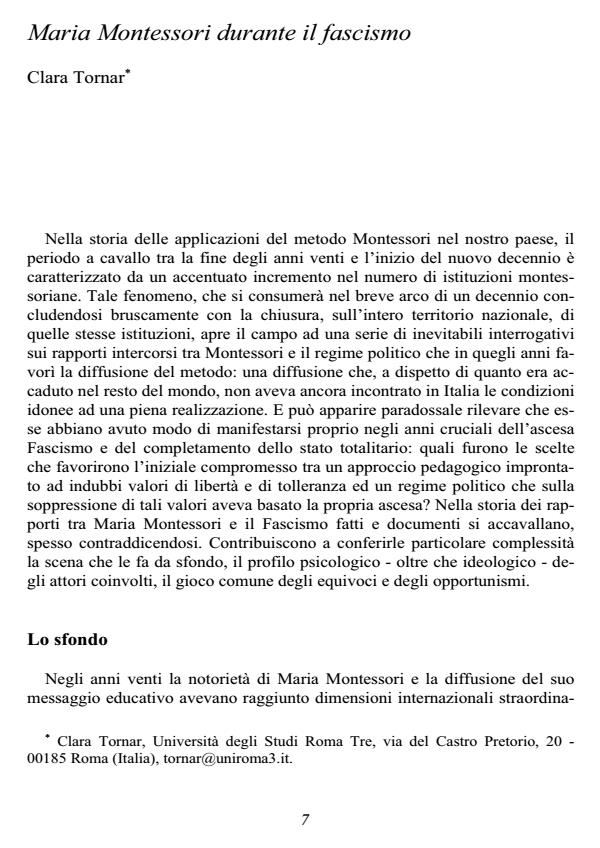Maria Montessori durante il fascismo
Journal title CADMO
Author/s Clara Tornar
Publishing Year 2006 Issue 2005/2 Language Italian
Pages 16 P. File size 81 KB
DOI
DOI is like a bar code for intellectual property: to have more infomation
click here
Below, you can see the article first page
If you want to buy this article in PDF format, you can do it, following the instructions to buy download credits

FrancoAngeli is member of Publishers International Linking Association, Inc (PILA), a not-for-profit association which run the CrossRef service enabling links to and from online scholarly content.
The late 1920s and early 1930s in Italy saw the peak of a process establishing Montessori pedagogy which would come to an end within a decade with the drastic closure of all Montessori schools in the country. This epilogue, which would also be seen in those years in other countries with a similar political regime, calls for an analysis of the relations between the creator of the most famous and widespread pedagogical method in the world and the political regime that favoured the application and dissemination of the method in Italy - a country in which it had still not encountered those conditions of realisation that would instead come about in the crucial years of the rise of Fascism and the completion of the totalitarian state. The essay examines the main events marking the history of Montessori’s conflictual relationship with Fascism in the years 1924-1934, from the initial contacts characterising it and leading up to the final break, after which Montessori finally left Italy until the end of World War II.
Clara Tornar, Maria Montessori durante il fascismo in "CADMO" 2/2005, pp , DOI: